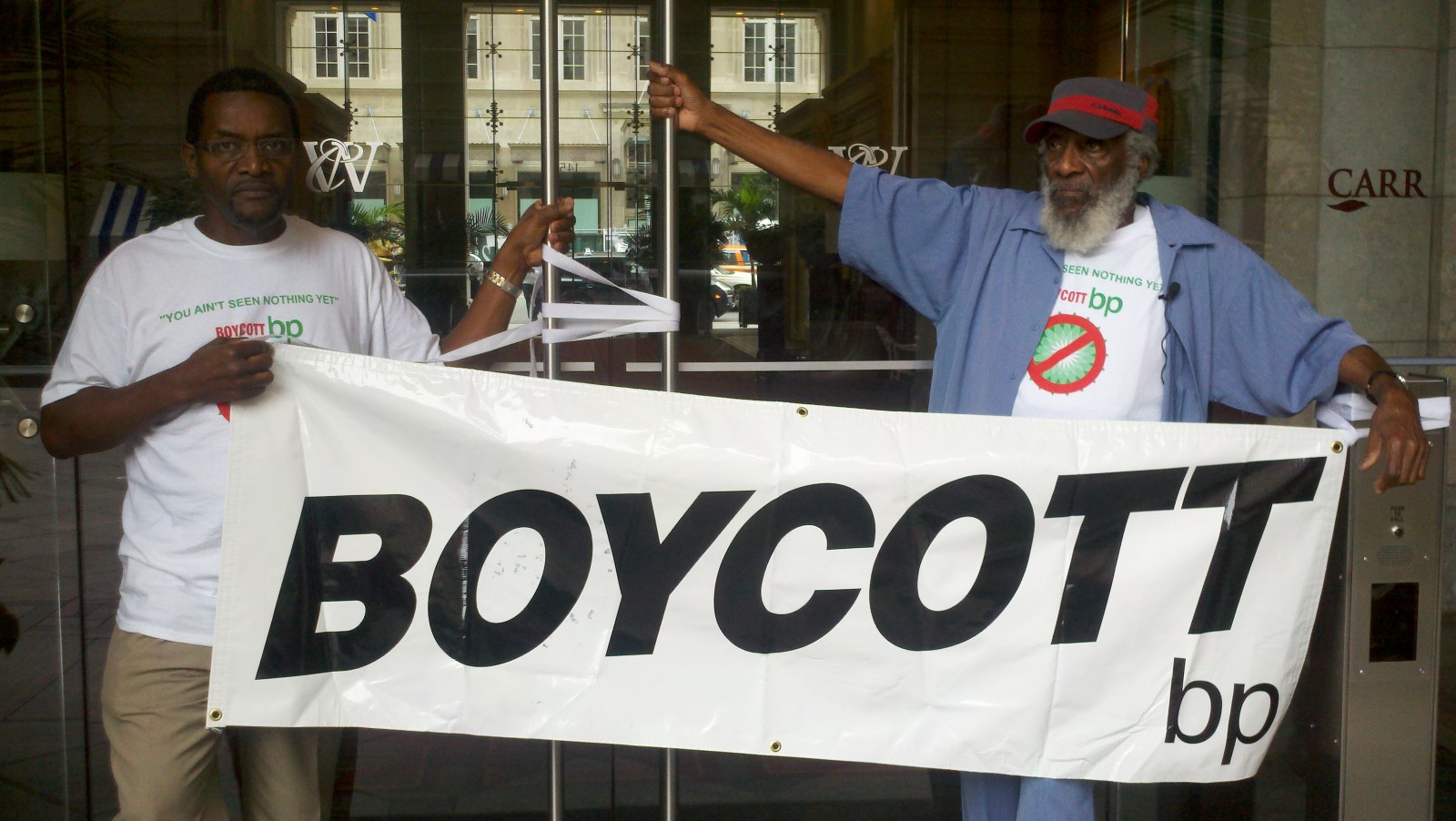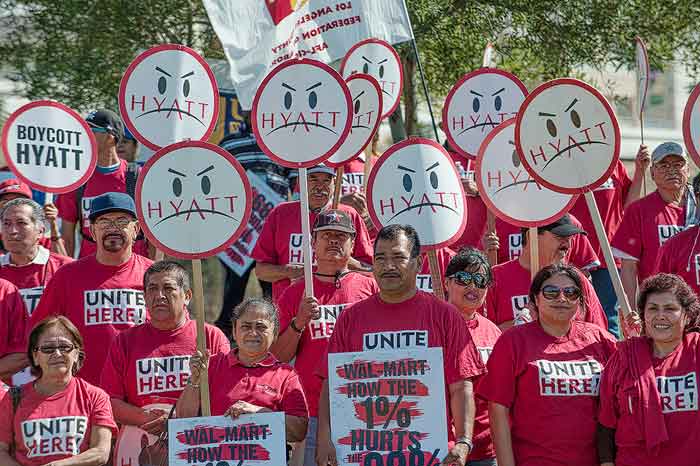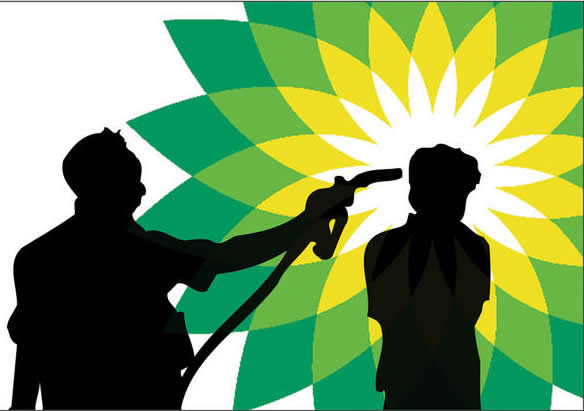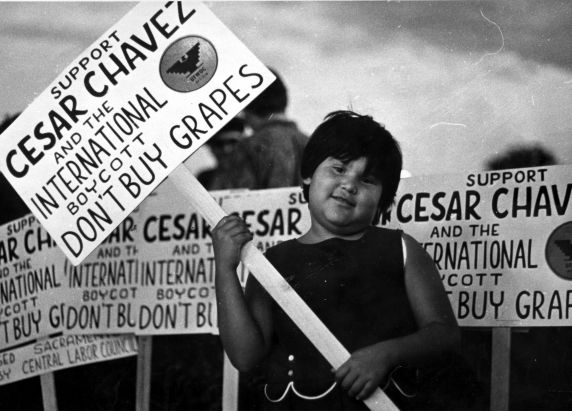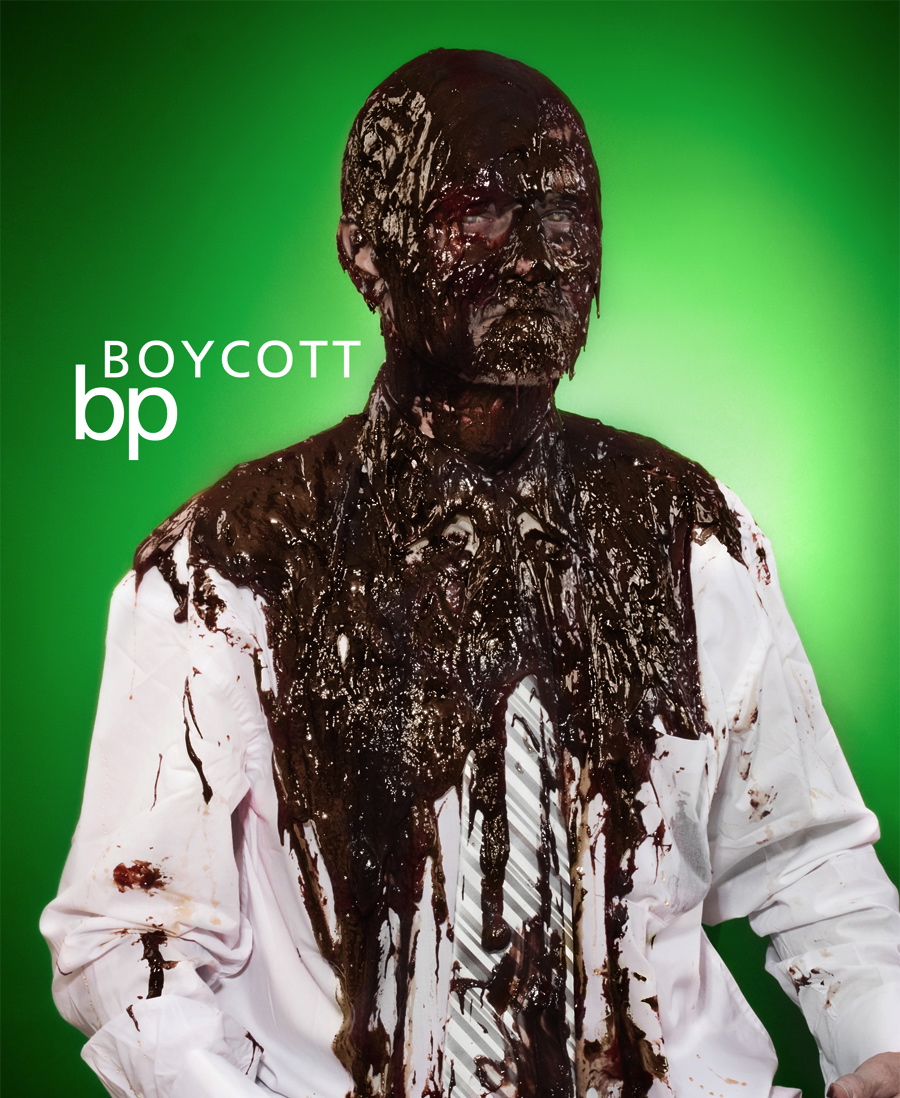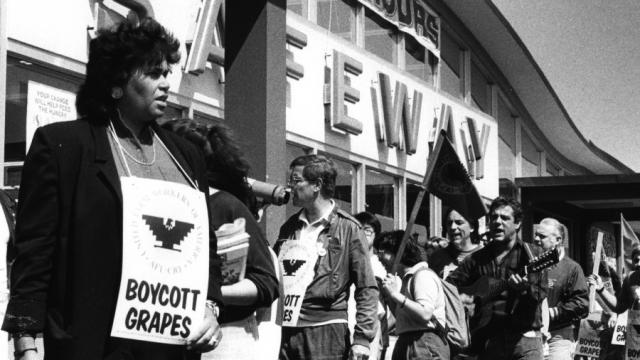
Where are the momentous, consciousness-raising boycotts of yesteryear that rose up against injustice, bigotry, or plain stupidity, to advance legal, civil and workers’ rights? Once upon a time high-profile uproars, some lasting years, brought down presidents, ended major wars, and remade national American priorities and values. Is such spirited activism, vs. the more legalistic modes now notching gains for marriage equality, as obsolete as quill pens?
With few exceptions, say Monsanto, the paucity here of policy-changing anti-corporate uprisings is all the more astonishing considering the moneyed octopus swells. And this dominance seems undeterred by challengers having, at our very fingertips, a limitless, low-cost communication network. Never before have so many activists commanded so many technological tools to corral like-minded millions into cohesive action. And yet, while trivial, celebrity inanities go viral, serious class and economic “viruses” endure uncontested.
What calamities remain that could trigger direct protests, by American consumers or street insurgents alike? Did tactical repression of Occupy scare off activists? Is corporate media ownership a reform death knell? Are we held captive, isolated, equating online petitions with defiant action?
I puzzle over the tepid response to the N.S.A.-corporate phone collusion scandal. Or lukewarm challenges to what the iconic John Lewis terms the Supreme Court’s “dagger in the heart of the Voting Rights Act”? How can entrenched Republican/corporate powers, so hypersensitive to shallow publicity stains (like Paula Deen), otherwise run roughshod, upping warfare against women or the misery of debt-laden college students, graduating into adulthood as indentured servants?
Education by Boycott
For the record, illustrious boycotts introduced me not just to politics but this key threshold, that audacity of change demands audacious confrontation. Effective protests not only grabbed headlines for months but testified that collective folks, vociferous, organized and focused, can make history, even reverse entrenched powers by sidestepping electioneering or the Washington shuffle.
Certainly, ‘60’s civil rights triumphs built on the Montgomery bus boycott a few years earlier, a success that modeled how non-violent means could whip ingrained segregation. Thousands in 1955 boycotted segregated a municipal bus system and, after 18 months, triumphed when the U.S. Supreme Court affirmed Rosa Parks knew more about the Constitution than hordes of bigoted southerners.
Next up was America’s most successful, grassroots protest: the Delano-United Farm Workers table grape boycott, spearheaded by the charismatic, heroic Cesar Chavez and Delores Huerta. Imagine today, a grinding, five-long-year boycott that forced pigheaded growers to recognize workers and unionization, even that humane working conditions are rights, not gifts. The great, grape boycott aligned the poorest of migrants with consumers everywhere and in time grapes of liberation displaced grapes of wrath.
Why Forgo Winning Plays?
In the meantime, countless, ill-publicized boycotts assail suspect businesses and dubious government actions. Boycott Owl lists hundreds of anti-company boycotts, many by disgruntled consumers but few with significant visibility. Is this mass media collusion at work, or are today’s boycott organizers less talented than earlier champions?
Are we less moral, less feeling, or less conscious – or all three – than protesters who raised the alarm, organized and got hands dirty until victory arrived? Look what it took to focus on Bangladesh’s mass killings after indefensible sub-contractors gambled on the lives of their own workers. How many scores of innocent school children will be sacrificed until the merciless guns rights god of the NRA is toppled? In fact, 1960’s corporations had less political might, paid higher taxes, and faced more oversight, state and federal, than greater behemoths today. Corporations like BP operate now as a law, if not a state, under itself, factoring in advance criminal penalties as “costs of doing business.”
Why not boycott obnoxious zealots who worship at the Citizens United altar, like rightwing casino magnet Sheldon Adelson (Las Vegas Sands or Venetian Macau Ltd.)? Why not singe the villainous Koch Bros. by not consuming Brawny towels or Angel Soft paper goods, Lycra clothing or Stainmaster rugs? When does Chick-Fil-A CEO Dan Cathy get stung for condemning gay rights as unnatural and immoral, inviting fire and brimstone from an angry God? How long would BP’s Arco stations thrive (or its Castrol, Aral, am/pm, Amoco, or Wild Bean Café brands) were enough consumers to drive, bike, or walk another block – and just say no?
BP, No Better Boycott Prospect
Indeed, BP is a terrific place to renew your boycott energy. Check out Facebook BP Boycott. We’re not talking industrial “accidents” but a rapid-fire, negligent plethora of fiascoes:
BP’s 2005 Texas City Refinery explosion killed 15, producing a record-setting OSHA fine;
BP’s 2006 Prudhoe Bay oil spill, the largest on Alaska’s North Slope, producing a $25 million civil penalty, then the largest per-barrel penalty;
BP’s 2010 Deepwater Horizon Gulf oil spill, the world’s worst environmental disaster, dumping five million gallons of crude that polluted a seaway irreplaceable to people and wildlife. Mammoth penalties (beyond $5 billion already assessed) getting finalized under the Clean Water Act and the Natural Resources Damage Assessment, overall to top $42 billion, the largest corporate penalty ever. BP only plead guilty to 11 counts of felony manslaughter, two misdemeanors, and one felony count of lying to Congress.
And there’s nothing “past” about crippling BP blunders: a 40,000 lb. mat of oil spill tar (165’ ft X 65’) just surfaced off a Louisiana beach, the tip of the 2.7 million pound iceberg of waste “cleaned up” since 2010 (is it “clean-up” if its lasts forever?). Poisoning extends far beyond the Gulf, per the Chicago Tribune: for years BP has exceeded by 20 times federal mercury dumping limits into Lake Michigan. If no ground-shaking jeopardy closes down such a serial blighter, the last, standing “sustainable” entity won’t be Mother Earth but an oil driller that racks up $25 billion in annual profits. Is BP also “too big to fail,” or too big and international to reign in from more devastation?
A quick reminder, simple, how-to kit for driving a boycott home plus big, successful modern boycotts:
1930: Gandhi’s March to the Sea defies the colonial British tax on commercial salt.
1955: Montgomery Bus Boycott: Rosa Parks’ arrest led to comprehensive boycott led by then-unknown Martin Luther King, Jr., ended 18 months later by Supreme Court’s agreement segregated buses are unconstitutional.
1960s: Grape Boycott: grassroots/community non-violent protest organized by the Cesar Chavez’s United Farm Workers highlighted plight of migrant workers, led to union contract and superior working conditions.
1980-90’s: Anti-Apartheid Boycotts: embargoed financial dealings with South Africa to defy racist “apartheid” policy.
3 WAYS TO SHOW YOUR SUPPORT
- Log in to post comments

